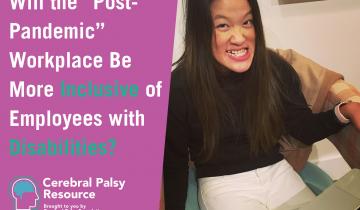The GMFCS, MACS and CFCS are all tools used by therapists and researchers to help classify the functional capabilities of individuals with CP. This research article provides evidence of their stability over time.
The GMFCS can be a helpful tool in clinical and research use and has been shown to be stable and accurate over time. It can also help individuals and families better understand cerebral palsy.
Our educational series continues with this virtual event featuring a multi-disciplinary panel discussion on exercise and physical activity and its impacts on spasticity and function.
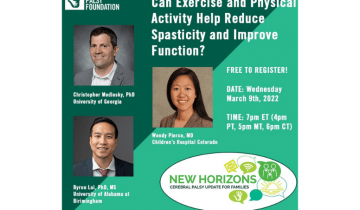
The Winter Paralympics is a great opportunity to learn about the many adaptive recreational and competitive sports for individuals with cerebral palsy.
Individuals with disabilities have opportunities to work, receive employment training and coaching, benefits counseling and save money without losing means tested benefits. This podcast discusses these options.
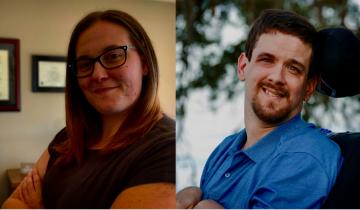
CPF Executive Director Rachel Byrne and physical therapist, Jennifer Jezequel, PT, discuss exercise and fitness for children with Cerebral Palsy.
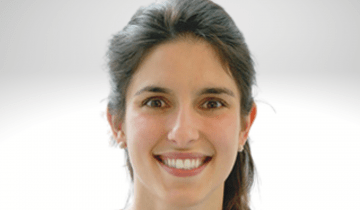
CPF Executive Director Rachel Byrne and Byron Lai, PhD, discuss exercise and fitness for individuals with Cerebral Palsy.
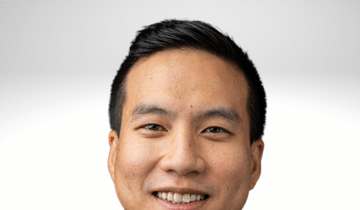
Vocational Rehabilitation (VR), operated by the Department of Education, can be utilized for their many tools to aid those with disabilities in the preparation for the job search, finding gainful employment, and maintaining this employment.
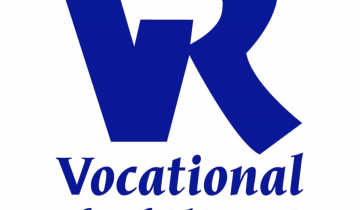
Students with disabilities often need extra support throughout the day to access their environment, the academic materials, and learn alongside their peers. A Personal Care Attendant in the school setting is often utilized to support the students needs.
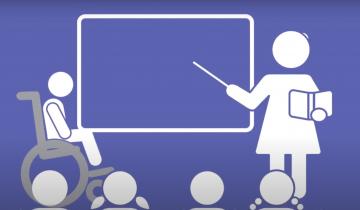
Children and teens with cerebral palsy and other disabilities may need the assistance of an individual who has a background in healthcare and the skills to provide the services essential to quality care.
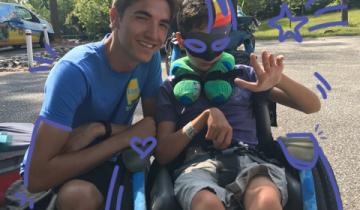
Personal Care Attendants for adults with cerebral palsy and other disabilities provide a variety of essential functions that ensure safety, health, wellbeing and overall impact quality of life.
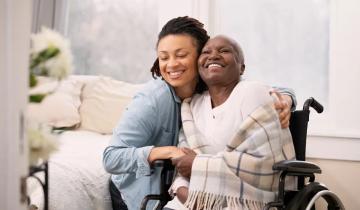
An employment agreement spells out the rules, rights and responsibilities for both the Personal Care Attendant (the employee) and the individual with cerebral palsy or family who is hiring the Personal Care Attendant.
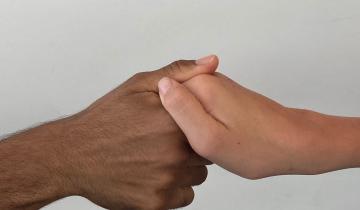
Author David Stoner provides insight into his experience with Personal Care Attendants through the years as his needs and his family's needs have changed.
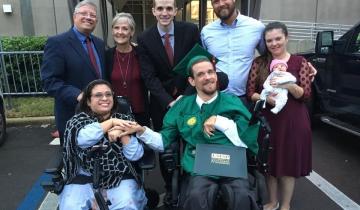
We got the diagnosis of Cerebral Palsy when Lelia was 18 months. I was really happy, as we didn’t know what was wrong with her before then. She had low tone. She couldn’t roll over. She couldn’t sit up. Of course she didn’t walk. The diagnosis gave it a name, something I could work with, and I became a kind of vigilante mother, determined to get the best care for my daughter.
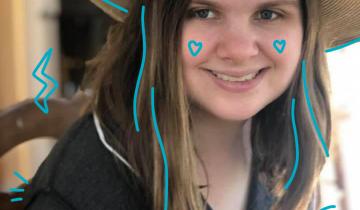
Wouldn’t it be great if inclusive, accessible playgrounds were in every community for all to enjoy? Although progress is being made in certain areas, there is a lot more work to be done to literally level the playing field and help communities and designers understand what makes an inclusive accessible playground and why they are important for people of all abilities.
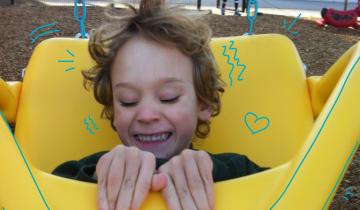
Almost all of us can vividly conjure up an episode of being bullied that occurred in our own lives. Hopefully, fewer of us will have memories of being the bully. These experiences and remembrances often are formative, perceived as hurtful, and can have a long term impact on our health and well-being. For me the memory of being the center of attention in a negative way never quite fades, but with age, the perspective changes to a challenge.
Individuals with Cerebral Palsy frequently participate in Adaptive Sports and Therapeutic Recreation programs. Though there are often many similarities in programs and frequently the terms are used interchangeably, there are differences that are highlighted here.
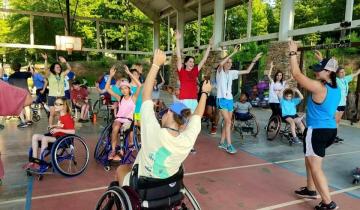
Frame Running is becoming increasingly popular as a recreational and competitive sport for individuals with cerebral palsy across all GMFCS levels. Tune in to learn more!
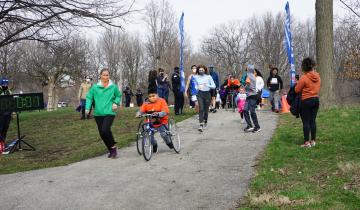
On this episode, I have the honor of talking with Wendy Pierce, MD, a pediatric physiatrist at Colorado Children's Hospital about physiatry, also known as Physical Medicine and Rehabilitation. This fantastic field of medicine can be helpful for individuals with cerebral palsy across with lifespan, but it has a confusing name and sometimes a confusing job description. So we set out to help listeners better understand what a physiatrist does.
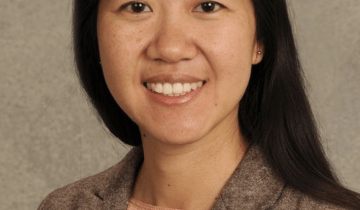
In this episode, Mary Gannotti, PhD, PT, discusses fitness, health and function across the lifespan for individuals with cerebral palsy.
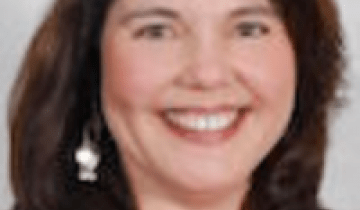
There are multiple factors that impact bone health, including birth weight, nutrition, medications for seizures and/or reflux, genetics, and physical activity. Targeted exercise to improve bone health in childhood can be sustained into adulthood, and childhood is the best time to promote bone health.
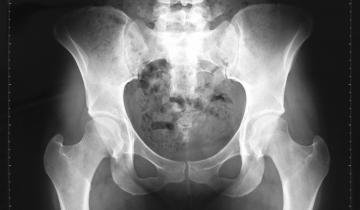
There are many kinds of physical activities that people with cerebral palsy can participate in – for both ambulatory people as well those who use various mobility devices. Knowing just what activities are right for whom can be tough, this article helps to sort that out.
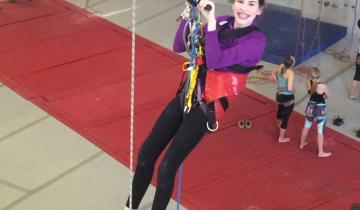
The RAD RaceRunner is a three-wheeled running bike with chest support. It is designed for children and adults with balance or mobility challenges to achieve their exercising goals -be it recreation, competition, or rehabilitation.
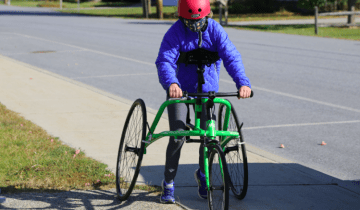
Our “Let’s Talk CP” podcast series kicks off with a great conversation about what questions to ask your child’s clinician when your child has cerebral palsy. How should you prepare for a medical appointment? What questions should you ask? Should you get a second opinion? Join Cerebral Palsy Foundation host, Cynthia Frisina as she shares candid talk, lessons learned and great advice with fellow moms, Wendy Sullivan and Jennifer Lyman. This episode is made possible with the support of Ipsen Biopharmaceuticals.

As cities and states across the countries are lifting the COVID-19 lockdown orders, people are returning to work at their offices. However, since the virus is still very much going around, employers must be vigilant about keeping their workplaces as safe as possible. Although we might be seeing a sense of “normalcy,” there’s still a long way to go before reaching the pre-pandemic normalcy—if we
